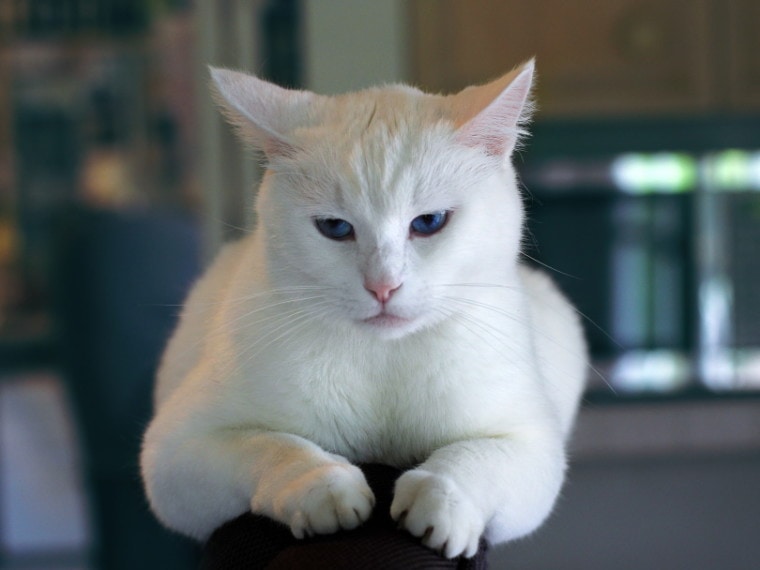
To many people, cats are aloof and solitary. They often shun affection and may even bear their claws at any attempts for cuddles.
The biggest cat lovers among us know that cats are social creatures at heart, though. While they don’t often show it outright, they love ear scratches from their favorite people as much as their canine siblings do. They’re just too stubborn to admit it!
However, this tendency to turn away from affection can have a detrimental effect on their wellbeing. When we think that they don’t want affection and it’s better to leave them alone, our beloved cats are often pining for companionship.
If it goes too far, loneliness can quickly lead to depression. To help you keep your cat happy, we’ve put together this list of signs that your cat might exhibit if they’re feeling in need of companionship, whether it’s from a fellow cat or just more playtime with their human.

The 6 Signs That Your Cat Is Lonely
Cats are creatures of habit. They thrive on routine and prefer to stick to their schedules, particularly whenever meals are concerned. A shift in your cat’s behavior is an obvious way that you can tell that something is bothering your feline.
That said, these signs alone don’t necessarily mean your cat is lonely. They can be due to a variety of other reasons, and it’s a good idea to check if the behavior continues over a few days and isn’t just a one-off. If you’re not sure whether your cat is lonely, ask your veterinarian for advice.
1. Clinginess
Some cats are clingier than others. They’ll trail you around the house and even follow you on your daily dog walks. If your cat suddenly starts following you everywhere or meowing excessively, it might be a sign of separation anxiety.
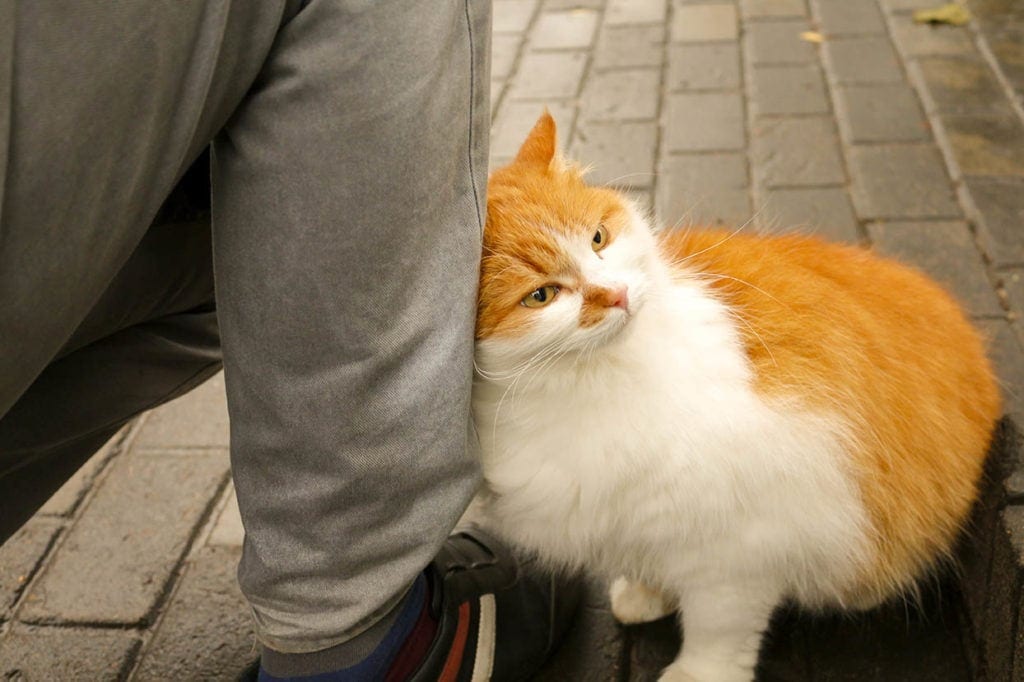
2. Eating
Cats are habitual creatures. This goes for their eating habits too. They’ll be thrown off their routine by something as simple as the clocks going forward or back or if you get home later than usual from work.
Sometimes, though, eating more than usual or not touching their food at all can be a result of boredom or depression. If your feline is bored enough, eating might be their way of giving themselves something to do. Depression can have the opposite effect.
Take into account how active your cat is during the day. If you have an outdoor cat, there could be a chance that they’re bribing food from your neighbors. Or perhaps they’ve been snoozing all day to wait out the rain and just aren’t hungry.
3. Destructive Tendencies
Like dogs, cats can become destructive when they’re bored. If you’re at work all day, all week long, and you come home to ruined furniture, it stands a good chance that your cat is stuck for something to do.
Cats are remarkably intelligent, and if there’s no one to play with, they won’t hesitate to find something to do to amuse themselves. The antique plate standing on your dresser probably looks fascinating when the sunlight catches it just right.
Leaving a few toys out can help lessen the destructive tendencies, but if your cat is lonely, they might still attack your furniture.
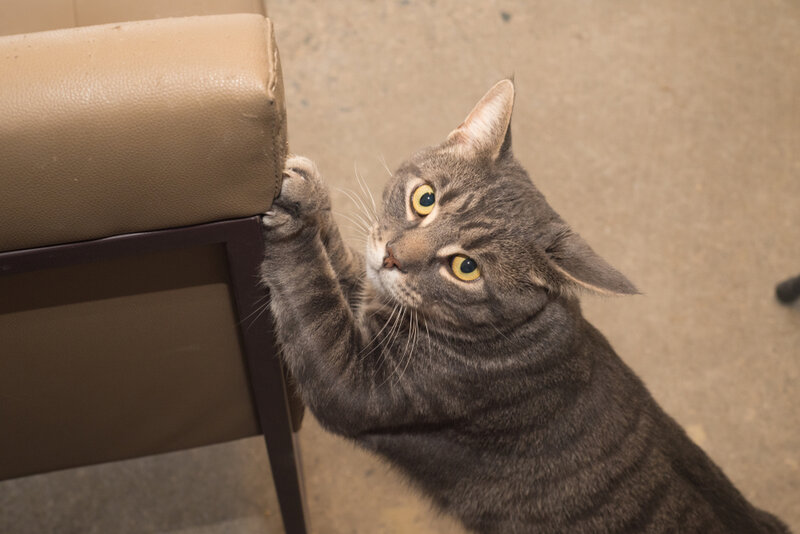
4. Grooming
To cats, cleanliness is important, and a change in their grooming habits is a good indicator that not all is well. Depression can make humans unwilling to get out of bed, and cats are no different. If your cat is lonely enough, you may find that they start looking a little bedraggled as they forego their usual cleaning sessions.
On the flip side, excessive grooming can be a way of calming themselves, or wrapping themselves in a blanket can mimic a warm hug. It’s a way to comfort themselves when there’s no one else around.
5. Lethargy
Depression drains the energy of even the most energetic creature. For lonely cats, if they go from boundless energy one day to morose wandering where they refuse to so much as blink at their usual favorite games, there’s a chance that they’re upset about something.
This isn’t necessarily the fault of loneliness. Sometimes, your cat might just feel miffed about something, especially if their canine sibling has stolen their favorite sunny spot.
Sudden lethargy also rolls neatly into another sign to watch for. If your cat is suddenly sleeping more than usual, it might be because there is nothing else for them to do.
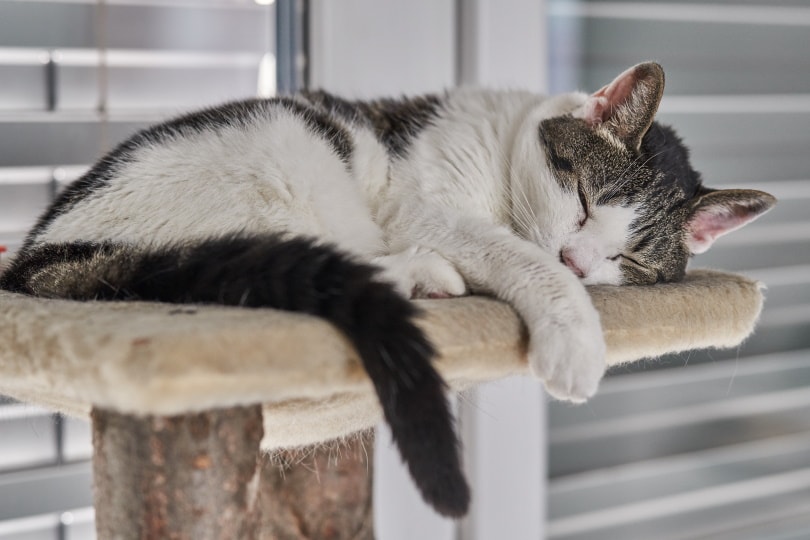
- Related Read: Do Cats Grieve? (And How to Help a Grieving Cat)
6. Litter Box Trouble
Another habit that cats have is using their litter box. But turning the whole house into their litter box is cause for concern. While it can be a sign of loneliness, remember to take into account any new litter that you might be using. Your cat might not appreciate crystal litter or the fancy, brand-new, automatic litter box. Pooping in your shoes is their way of protesting.

Medical Conditions
While a change in our cat’s behavior can be the result of boredom or loneliness, many of the signs on this list can also present when your cat is suffering from a medical condition. Refusing to eat, changing their grooming habits, sleeping more, and having litter box issues can all be signs that your favorite feline is feeling under the weather.
For this reason, it’s important to talk to your veterinarian before deciding whether your cat is lonely or not. Giving them a companion is all well and good, but it won’t help them if they’re sick.
Does My Cat Need a Feline Companion?
If you’ve established that your cat is lonely, the next decision is how to go about fixing it. Not all cats will get along with other felines—all they might need is their favorite humans to come home from work for lunch or to play games more often. If you’re away frequently, you could hire someone to spend the day with your cat in your stead.
To know if your cat would appreciate a feline companion, you’ll need to know if they’re happy around other cats. If they’re used to feline companionship, it stands to reason that they’ll appreciate another cat friend.
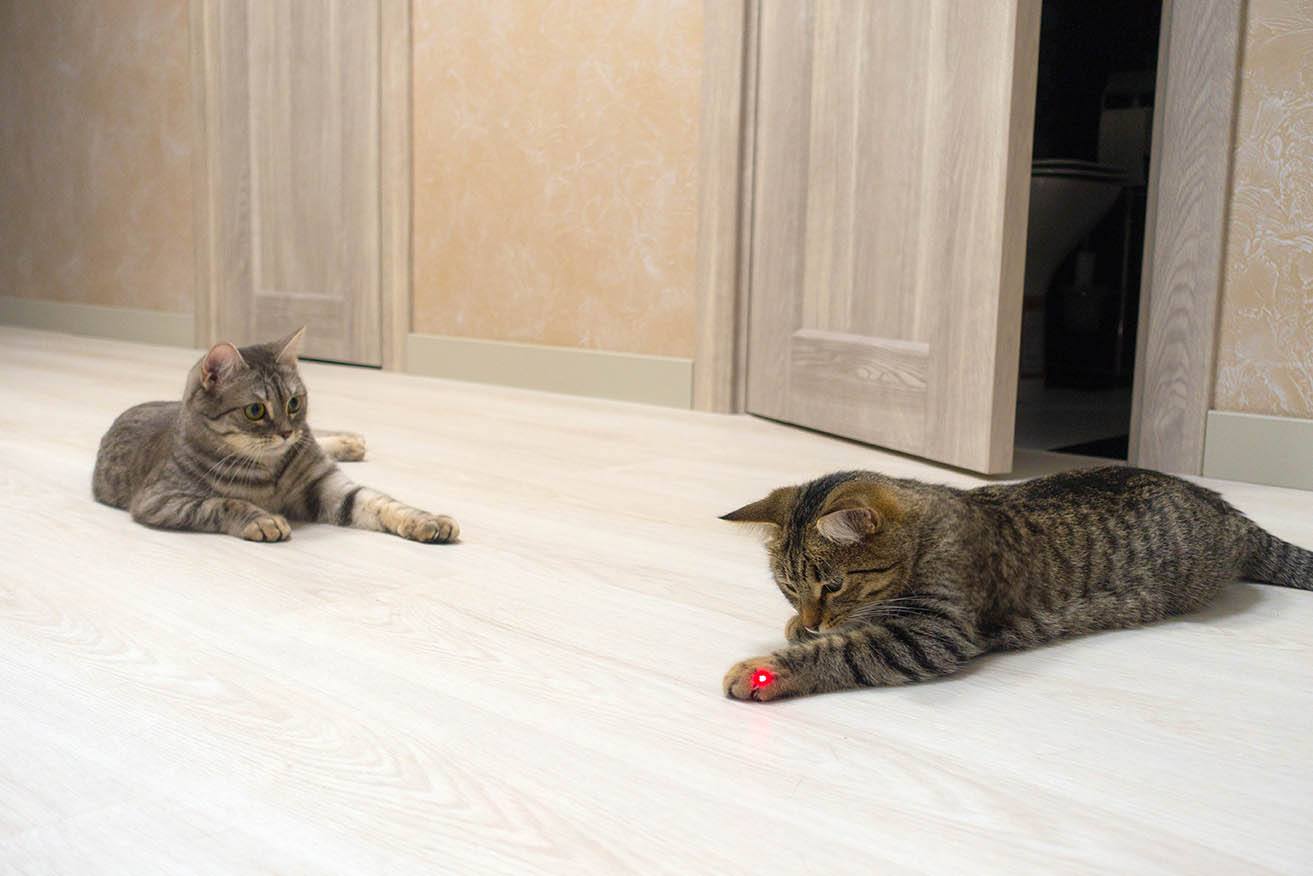
How Do I Introduce a New Cat to My Feline?
Cats don’t take kindly to strangers invading their homes. It’s their safe place, and having a new feline on their turf is enough to make hackles rise. For this reason, it’s important to introduce a new cat slowly.
Kittens are easier in this instance because they’ll be more willing to let your older cat make the rules. It’s still a good idea to keep both cats in separate rooms or play areas at first, with supervised meetings. Don’t forget to shower both cats with love, as you don’t want your existing feline to believe that they’re being replaced.
Also, remember that some cats make new friends slowly. They might spend months hissing at each other, and just when you are about to lose hope, you’ll find them snuggled up together in the best sunny spot on the couch.

Final Thoughts
Our favorite felines might not admit it, but they’re social creatures and they love affection. They can feel lonely, bored, and even depressed if they don’t have enough social interaction with their favorite humans or another cat.
Paying attention to the aforementioned signs and ruling out any medical conditions will help you figure out if your cat is pining for companionship. Then you can decide whether they’ll appreciate meeting that kitten you’ve been eyeing or if they’d prefer more cuddles with you.
Featured Image Credit: Piqsels





